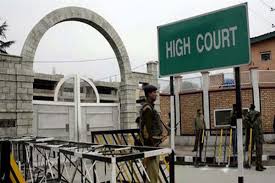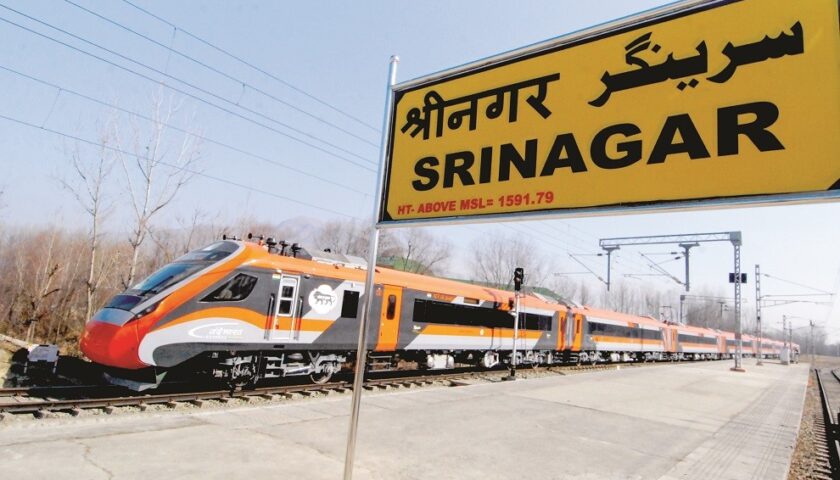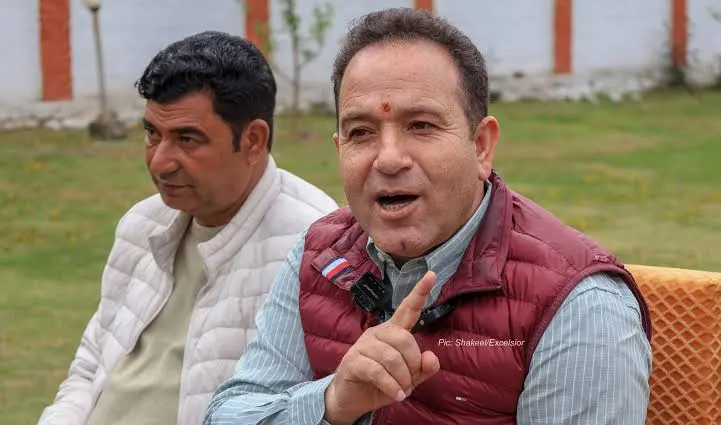The High Court Monday asked the government of India and the Jammu and Kashmir government to respond to a plea against two constitutional amendments extended to the state vis-à-vis reservation in promotion for scheduled castes and scheduled tribes, and reservation for economically-weaker sections of the society in the state.
A bench of Justice Rajesh Bindal issued notice to the union home ministry, union ministry of law and justice, union cabinet through cabinet secretary and state of J&K, through its chief secretary, seeking their response to the petition by April 16.
While the assistant solicitor general Tahir Shamsi accepted notice on behalf of the government of India, senior additional advocate general, B A Dar, accepted it for the J&K government.
The court issued the notices after hearing advocate Mian Abdul Qayoom on behalf of advocates Muhammad Ashraf Bhat and AdilAsimi, who have filed a petition in their individual capacities seeking to declare Jammu & Kashmir Reservation (Amendment) Ordinance, 2019 and Constitution (Application to Jammu & Kashmir) Amendment Order, 2019 as unconstitutional and quashed accordingly.
Advocate Bhat, also a general secretary of the Kashmir High Court Bar Association and Asimi, the joint secretary of the lawyers’ body, have submitted that “the Constitutional (Application to J&K) Order, 2019, is ex-facie unconstitutional because the Constitution of India (COI) does not apply to the State of J&K on its own force”.
“It applies to the State by virtue of Article 370 of the Constitution of India, which provides a mechanism for application of Constitution of India to the State of J&K, requiring a “consultation” or a “concurrence” of the State Government,” the petitioners plead.
“The State Government for the purpose of Article 370 means “the Maharaja”, and/or the “Sadar-i-Riyasat” acting on the advice of the Council of Ministers, for the time being office (sic). Thus any and every Presidential Order which applies any part of Constitution of India to the State of J&K requires the mandatory “consultation” or “concurrence” of the State Govt, meaning the Sadar-i-Riyasat, acting upon the advice of the Council of Ministers,” they contend.
The two lawyers submit that the 77th and 103rd Constitutional Amendments, which now forms part of Indian Constitution, were not admittedly hitherto applicable to the State of J&K and could not be therefore applied to the State without the “consultation” or “concurrence” of the “State Government”.
“Since after the Proclamation of 20 June 2018 the assembly was firstly put in suspended animation and after some time it was dissolved and as on date there is no Council of Ministers, therefore, the Governor, notwithstanding the fact that he is no entity under Article 370 of the Constitution of India, without the advice of the Council of Ministers, was incompetent to give any “concurrence” to the proposal for issuing Constitution (Application to Jammu & Kashmir) Order, 2019,” the petitioners plead.
The petitioners submit that the “Governor of J&K, who does not otherwise also figure anywhere in the Explanation appended to Section 1(b) of Article 370, in absence of Council of Ministers was not legally competent to give any “concurrence” to the application of any part of Constitution of India to the State of J&K”.
The unilateral action of the Governor in giving his “concurrence” to the Constitution (Application to J&K) Order, 2019, they plead, is “clearly without jurisdiction and unconstitutional”.
“The President of India, after having issued Proclamation under Article 370 of the Constitution of India, had no power to amend J&K Reservation Act, 2004, which is a State Act, by issuing the Ordinance in
“Whenever a President’s Rule is declared under Article 356 of the Constitution of India, in any State, the functions of the State Government vest with the President and the power of Legislature to make or amend laws vests with the Parliament. It is only the Parliament which can make or amend any law, during the President’s Rule. In that view of the matter it was not the President but the Parliament which could amend a State Law,” reads the petition.
The petitioners further plead that Article 357 also provides a mechanism where under Parliament can delegate its power to the President.
“It would
“In 1992 also, when the State was under President’s Rule, Parliament passed J&K State Legislature (Delegation of Powers) Act, 1992, pursuant to which, the President made an amendment in J&K Public Safety Act. In other parts of India, where a State was under President’s Rule, the Parliament had passed a Delegation of Power Act
“While the Indian Parliament in its Winter Session approved
They submitted that the laws made during the President’s Rule are qualitatively and constitutionally altogether different and distinct from laws made through an ordinance.




